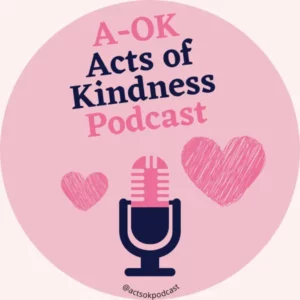In today’s fast-paced world, where stress and competition often overshadow compassion and empathy, the importance of kindness cannot be overstated. “Incorporating Acts of Kindness into Daily Life: Practical Strategies for Everyone” explores the transformative power of simple, thoughtful gestures that can enhance both individual well-being and community cohesion.
Research has consistently shown that acts of kindness not only benefit the recipients but also promote greater happiness and fulfillment for the givers. Despite these advantages, many individuals struggle to integrate kindness into their daily routines, often perceiving it as an optional addition rather than an essential practice.
This article serves as a guide, offering practical strategies that anyone can adopt, regardless of their lifestyle or circumstances. By highlighting everyday opportunities for kindness, such as volunteering, expressing gratitude, or simply offering a smile, the article aims to inspire readers to cultivate a culture of compassion within their lives and surroundings.
Through detailed examples and actionable tips, readers will discover how small, deliberate acts of kindness can create a ripple effect, fostering deeper connections and a more supportive environment. Ultimately, embracing kindness can lead to a more fulfilling life and a stronger, more resilient community.
Small gestures create big impacts daily.
Acts of kindness, no matter how minor they may appear, can significantly influence both the giver and the recipient. A simple smile or a warm greeting can brighten someone’s day, fostering a sense of community and connection.
Research indicates that these small, positive interactions can lead to increased feelings of well-being for both parties involved. When individuals engage in such gestures, they often inspire others to pay it forward, creating a ripple effect that can enhance the overall atmosphere of a workplace, school, or neighborhood.
Moreover, the cumulative effect of these daily actions can lead to substantial societal change over time. When kindness becomes a habitual practice, it contributes to a culture of compassion and understanding.
This environment not only benefits individuals but also strengthens social bonds, encouraging collaboration and support within communities. Thus, even the most modest acts can serve as powerful reminders of humanity’s shared values, promoting a more empathetic and cohesive society.
The practice of regularly engaging in kind acts can profoundly influence an individual’s perspective on life, encouraging the development of a grateful mindset.
Volunteering strengthens communities and relationships.
Engaging in volunteer activities allows individuals to forge meaningful connections while addressing community needs. These experiences often bring people from diverse backgrounds together, fostering a sense of belonging and mutual respect.
As volunteers work side by side, they share their skills, knowledge, and perspectives, which not only enhances personal relationships but also cultivates a supportive network within the community. This collaborative effort often leads to the development of trust and understanding, essential components for a thriving society.
Furthermore, volunteering often ignites a shared sense of purpose among participants, encouraging them to invest in the well-being of their surroundings. When individuals see the tangible impact of their contributions—whether through community service projects, mentorship programs, or local advocacy—it reinforces their commitment to one another and to the community at large.
As a result, the bonds created through these shared experiences are likely to extend beyond the volunteering context, leading to lasting friendships and a strengthened social fabric. The ripple effect of such engagement can transform not only the lives of those directly involved but also inspire broader collective action for positive change.
Check out this episode!
Compliments boost morale and encourage positivity.
Recognizing the power of positive reinforcement, compliments play a crucial role in uplifting spirits and fostering an optimistic environment. When individuals express genuine appreciation for the efforts and qualities of others, it not only enhances the recipient’s self-esteem but also cultivates a culture of encouragement.
This cycle of positivity can significantly impact group dynamics, whether in workplaces, schools, or social settings, leading to improved collaboration and overall morale. By acknowledging each other’s contributions, people feel valued and motivated, ultimately contributing to a more harmonious atmosphere.
Moreover, the act of giving compliments can transform interactions into meaningful exchanges, reinforcing social bonds and enhancing emotional well-being. When individuals take the time to recognize and celebrate one another’s strengths, it creates a ripple effect that encourages further acts of kindness.
This supportive environment nurtures a sense of community, where individuals are more inclined to express gratitude and appreciation. As positivity spreads, it reinforces the importance of connection and the shared human experience, fostering resilience in the face of challenges and promoting a culture of kindness.
Random acts inspire kindness in others.
Random acts of kindness often serve as sparks for a broader wave of generosity within a community. When someone witnesses a thoughtful gesture, such as a stranger holding the door open or offering words of encouragement, it subtly influences their own behavior.
This observation can motivate individuals to pay it forward, leading to a chain reaction of benevolent acts that enhance social cohesion. As these actions accumulate, they reinforce the idea that kindness is not only rewarding but also a shared value among community members.
The impact of these spontaneous gestures extends beyond the immediate recipients; they create an environment where kindness becomes the norm rather than the exception. Individuals inspired by such acts may find themselves more inclined to engage in similar behaviors, thereby fostering an atmosphere of compassion and understanding.
This cultivation of kindness not only enriches personal relationships but also strengthens the fabric of society, as individuals collectively contribute to a positive and nurturing environment. Through these interconnected acts, a powerful cycle of goodwill emerges, demonstrating that even small gestures can have profound and far-reaching effects.

Check out this podcast!
Consistent kindness fosters a grateful mindset.
The practice of regularly engaging in kind acts can profoundly influence an individual’s perspective on life, encouraging the development of a grateful mindset. When individuals consistently choose to be kind, they begin to notice the positive effects of their actions, both on themselves and others.
This ongoing cycle of giving can lead to a heightened awareness of the goodness that exists in the world, prompting a shift in focus from what may be lacking to the abundance of positive relationships and experiences available to them. As they witness the joy and appreciation generated by their kindness, a sense of gratitude can blossom, enhancing their overall well-being.
Additionally, this consistent commitment to kindness nurtures a deeper connection with the community and the people within it. When individuals see the impact of their actions reflected in the smiles and gratitude of others, they are likely to cultivate a greater appreciation for the interconnectedness of life.
This awareness not only reinforces their own sense of purpose but also encourages a mindset that celebrates the small, everyday moments of joy. Thus, by making kindness a habitual practice, individuals can effectively create a ripple effect that not only uplifts themselves but also encourages others to adopt a similar grateful outlook on life.
In conclusion, incorporating acts of kindness into daily life is not only beneficial for individuals but also fosters a more compassionate and connected community. By adopting practical strategies such as small gestures, volunteering, and expressing gratitude, everyone can contribute to a culture of kindness.
As individuals practice these habits, they not only enhance their own well-being but also inspire others to follow suit. Ultimately, the ripple effect of these actions can lead to transformative changes within communities, highlighting the profound impact that simple acts of kindness can have in creating a more empathetic world.


